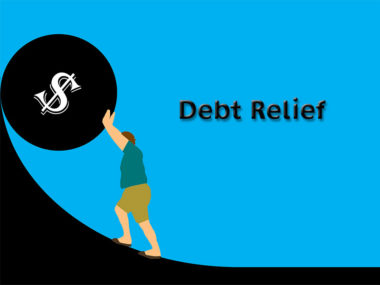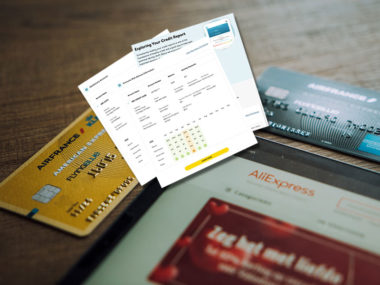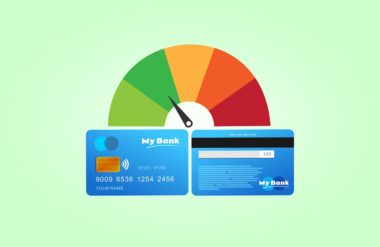The average American household had a combined debt of $137,063 in 2017 — nearly triple what it was in 2000. That’s a lot of money, and many people with significant amounts of debt are desperate for relief.
As a result, this makes them vulnerable to debt relief scams, which have become alarmingly common in recent years. In this post, we’ll discuss the basics of how these scams work, how to identify them, and how to avoid becoming a victim.
Table of Contents
How Debt Relief Scams Work
Debt relief scam companies promise to negotiate with creditors to settle debts and lower the number of money debtors owe. They typically charge a large upfront fee before settling any debts. However, no progress is ever made, and they simply take the money and run.
Scammers operate under the guise of being a “legitimate” settlement company that has a debtor’s best interest in mind. However, in reality, their only goal is to swindle people out of their money, and they’re willing to use nefarious means to do so. These rackets run the gamut and can include everything from traditional credit repair scams to modern cyber scams involving identity theft.
It’s important to note that there are genuine debt relief companies out there who really do negotiate on behalf of debtors, but even they can’t make any guarantees that a settlement can be reached.
Warning Signs
Debt relief scam companies have become increasingly sophisticated with their methods and aren’t always easy to spot. However, there are some definite red flags that something isn’t right.
Guaranteed Results
One major red flag is when a company makes big promises that they’re capable of improving your debt situation, no matter what. Another is guaranteeing that it can be done within a specified time frame. No one can say for certain that they’ll be able to reach a settlement because every situation is different. It’s impossible for a company to guarantee that it can lower your debt.
Upfront Fees
Always be wary if someone asks you for an upfront payment before providing any services. This is actually illegal and a surefire sign you’re dealing with a con artist. Credit repair scams are notorious for employing this tactic.
Solicitation Methods
Pay attention to how these individuals approach you. Did they contact you through a telemarketing phone call or on social media? If you’re approached out of the blue and they immediately start asking for sensitive information like your Social Security and/or personal account numbers, that means something is amiss. This is especially common with scams that target senior citizens, as well as reverse mortgage scams that target homeowners who are in a tough financial predicament.
Aggressive Sales Tactics
Finally, look at their sales tactics. Are they being overly aggressive and saying you only have a limited amount of time to capitalize on their offer? This is a common strategy used in student loan forgiveness scams where callers warn that a person’s eligibility will soon expire. If you get hit with high-pressure sales tactics like these, you can pretty much bet that it’s a scam.
How to Avoid Being Scammed
The old maxim “if it sounds too good to be true it probably is,” applies here. You should always be wary whenever someone makes big claims that no else is making, as this is often the mark of debt relief scam companies.
Research Before Doing Business
Resist the urge to fall for false promises or guarantees that are impossible to achieve. In situations like this, due diligence is required, and you’ll want to research the company to learn about their credentials and if they’ve been associated with any unethical business practices.
Report Scammers to the Feds
If you suspect you’re dealing with a debt relief scam, be sure to report it to the Federal Trade Commission. They offer a complaint assistant program where you can explain the situation and file a formal complaint. That way you can stop predatory behavior and prevent debt relief scam companies from taking advantage of others.
Try to Manage Your Own Debt
It’s wise to look for other ways to get your debt under control. Remember that people are most vulnerable when they’re in a desperate situation. Someone who’s been out of work, for instance, may be enticed by an employment scam promising a big salary for upfront money.
Here are some ideas for managing debt:
- Create a budget – Debt payoff apps like these can be helpful.
- Seek out debt counseling – Check out the National Foundation for Credit Counseling.
- Use a debt repayment method – Examples include the snowball method and avalanche method.
- Consolidate your loans – You only have one payment per month with a fixed interest rate.
Debt Relief Companies
Not all debt relief programs are straight up scams. However, many use unscrupulous techniques to take advantage of debtors or negotiate settlements that reduce debt, but also cause significant damage to consumer credit scores. In the long run, participating in their programs can end up costing more than they’re worth and potentially hurt your credit. This has led some consumers to label debt settlement companies in general as scams — even when they aren’t breaking any laws or stealing from their clients.
If there’s any doubt as to a company’s validity, you should perform extensive research to learn more about them and the services they offer. Can you find a website and a LinkedIn profile? Are there any complaints to the Better Business Bureau involving the company? Does the word “scam” or “scam alert” pop up when you search for them on Google? These can all provide clues as to whether they’re legitimate or not. Also, note that you can check for current scams on the Identity Theft Resource Center.
You may also want to look into alternatives like negotiating with creditors yourself rather than using a third party. Debtors don’t need to have a debt settlement company speak to creditors on their behalf. So there’s a decent chance you can work out more favorable repayment terms and potentially lower your interest rate this way. Another option is to sign up for a debt management plan, which can help you pay off your debt quicker. This is something that tends to work well for knocking out credit card payments.
Image Source: https://depositphotos.com/





